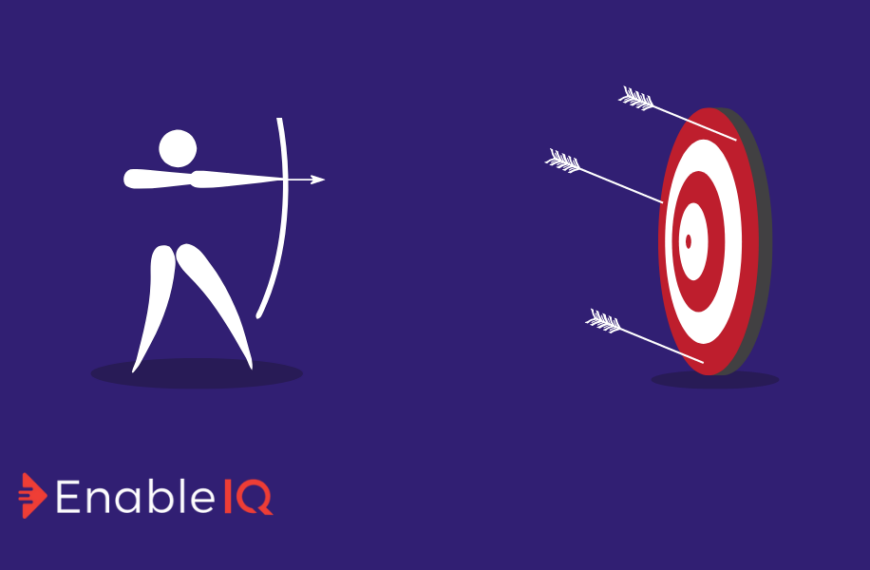In the last 10 years, the percentage of sales professionals not meeting their targets has increased to almost 50%, and with turbulent market conditions, we can only expect that number to rise.
However, within each of these same teams the top performers are selling 3-6 times more than the rest of the team despite having access to the same training, collateral, pricing and competition . So what’s happening?
In this article, we address the key sales drivers of team performance and how understanding these and identifying development opportunities within them can close the gap between your best and the rest.
A holistic view of the sales profession
It should be of no surprise to hear that there is no silver bullet when it comes to improving your team’s performance. B2B sales is complex in nature and there is no single initiative or driver that, when focused on, will work in every scenario. Through years of gaining an intimate understanding of the problems organisations of all sizes face, we’ve determined there are actually four key drivers of sales performance that account for more than 80% of the variation between the best and the rest.
These four top drivers of sales performance are:
- 1. Skillset
- 2. Mindset
- 3. Toolset
- 4. Sales Leadership & Management
Each of these drivers needs to be assessed, managed and optimised for the sales team to realise their full potential. Let’s take a look at how you can do this.

The Importance Of Skillset
You already know that the developed skillset or skills profile of a top performing B2B sales professional is different from the skills profile of an average or poor performing sales professional. What may surprise you, is that very few sales organisations have the ability to measure and identify how these skills profiles differ and which skills explain the higher level of performance of the top 20%. In some organisations it is the level of questioning, pitching and closing skills, in others it might be the maturity of their prospecting, qualifying and negotiation skills.
How to address it
A formal sales team capability assessment is without doubt the most effective and reliable way to identify the critical sales skills and competences for your sales team. With the insights provided by internal and external benchmarking data, and individual and manager assessments, you can determine which sales competencies are having the most significant effect on your team performance. One you’re armed with this information, you can provide training opportunities specific to the needs of your core performers, rather than a broad generic approach.
The Importance Of Mindset
Mindset, the individual’s motivation and drive to succeed, has more impact on sales performance than any other factor. It doesn’t matter how well developed an individual’s sales skills and competences are if:
- They aren’t willing to pick up the phone and make cold calls and prospect, or are concerned that if they follow-up too often, they will be considered a nuisance. The fact is, they will never have enough opportunities in their pipeline.
- They do not truly believe in the value and quality of the solutions that they sell, they will never be able to consistently challenge the buyer’s status quo and build the credibility and trust in those solutions for the buyer to say “Yes”.
- They do not view sales as an honourable and ethical profession that helps their clients and customers to solve problems. They will never have the tenacity and resilience to maintain the activity levels required for success.
- They are not genuinely motivated and driven to sell and to achieve their targets. They will avoid the less pleasant aspects of their role and never establish a high-performance operating rhythm that maximises their selling time and success.
How to address it
Mindset and drive must be critical considerations in the recruitment and selection process. The importance of an individual’s attitude towards sales and the role you are seeking to fill cannot be overstated. When it is not right, the individual will never achieve the activity levels and success levels you need for them to achieve a plan. Instead, they will avoid key activities and keep busy doing low-value, non-sales activities.
The Importance Of Toolkit
One of the most significant trends is sales in recent years has been the growth in the sales enablement function within businesses. At the highest level, a key role of sales enablement is to identify, develop and deploy sales tools, best practices and collateral to help the sales team sell. One of the most effective ways to do this is to engage the top performers within the sales team and find out what sales tools, processes, best practices or collateral they use and where any of these have been provided by the business, what refinements and improvements they have made to them to make them more effective. Whilst this process of improvement at the individual salesperson level is often the result of trial and error, finding these improved sales tools and deploying them consistently across the whole team can be highly effective.
How to address it
Establish a regular rhythm of engaging with your top performers and identifying what tools, practices and collateral they find most useful, and then distributing these across the whole sales team.
The Importance Of Sales Leadership & Management
When sales professionals are asked about factors that have the greatest impact on their role and performance, one of the most common responses is around the quality and support of their direct sales manager. When you consider the influence their sales manager can have over their skillset and mindset through coaching, guiding and feedback and over their effective adoption and utilisation of the optimised sales toolset, this is a logical connection.
However, only 20-25% of B2B organisations provide their sales managers with dedicated sales management training and development. As a result, as many as one third of all newly appointed sales managers fail in their first 24 months and up to half of their sales teams fail to achieve quota.
How to address it
Sales management requires a very different skillset from actual selling and has such a fundamental impact on sales team performance, engagement and motivation that all sales managers should be provided with specialist sales management training and coaching.
How we can help
For more on the core drivers of sales success and how to develop a picture of your organisation, visit our capability assessment or get in touch with us for a demo of EnableIQ to get your sales professionals and leaders on the right learning pathway.


